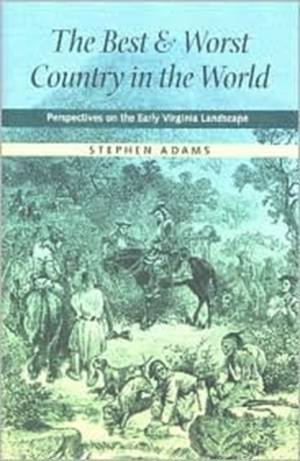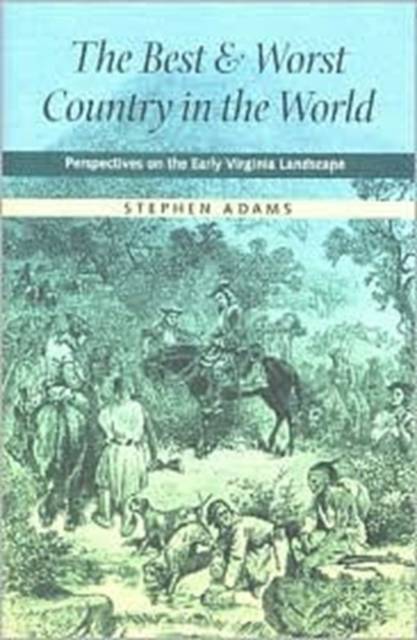
- Afhalen na 1 uur in een winkel met voorraad
- Gratis thuislevering in België vanaf € 30
- Ruim aanbod met 7 miljoen producten
- Afhalen na 1 uur in een winkel met voorraad
- Gratis thuislevering in België vanaf € 30
- Ruim aanbod met 7 miljoen producten
Omschrijving
From its earliest days, the Virginia landscape has elicited dramatically contradictory descriptions. The sixteenth-century poet Michael Drayton exalted the land as "earth's onely paradise," while John Smith, in his reports to England, summarized the area around Jamestown as "a miserie, a ruine, a death, a hell."
Drawing upon both familiar history and lesser-known material from deep geological time through the end of the seventeenth century, Stephen Adams focuses on both the physical changes to the land over time and the changes in the way people viewed Virginia. The Best and Worst Country in the World reaches well beyond previous accounts of early American views of the land with the inclusion of fascinating and important pre-1700 sources, Native American perceptions, and prehuman geography and geology.
A blend of history, literature, geology, geography, and natural history, enriched by illustrations ranging from a dinosaur footprint to John Smith's famous "Map of Virginia," Adams's work offers an ecocritical exploration of the varied preconceptions that have shaped and colored the human relationship with "the best and worst country in the world"--the early Virginia landscape.
Specificaties
Betrokkenen
- Auteur(s):
- Uitgeverij:
Inhoud
- Aantal bladzijden:
- 322
- Taal:
- Engels
- Reeks:
Eigenschappen
- Productcode (EAN):
- 9780813920375
- Verschijningsdatum:
- 29/10/2001
- Uitvoering:
- Hardcover
- Formaat:
- Genaaid
- Afmetingen:
- 152 mm x 229 mm
- Gewicht:
- 612 g

Alleen bij Standaard Boekhandel
Beoordelingen
We publiceren alleen reviews die voldoen aan de voorwaarden voor reviews. Bekijk onze voorwaarden voor reviews.











